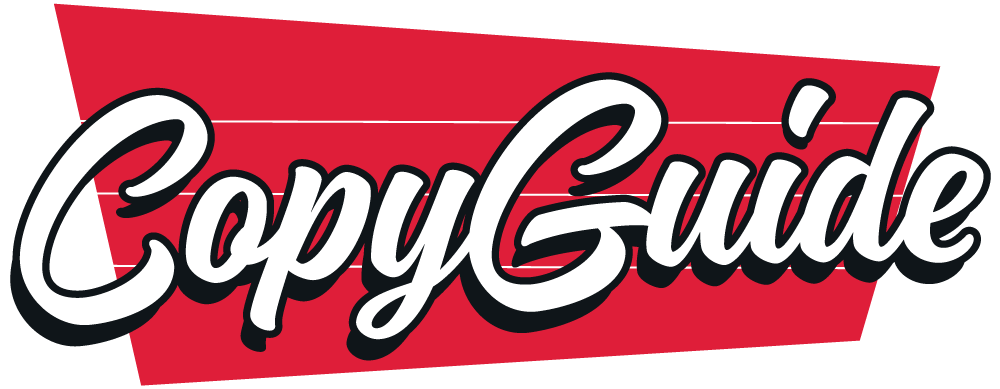When you first start exploring copywriting, it's normal to think, "how tough can it really be?"
After all, it's just writing. Or so we thought.
Anyone can put words on a page – but it takes a special talent to craft them into something enjoyable and relatable to others.
As a beginner copywriter, it's important to remember that the foundation of your craft is built on the words you choose to use and the way you string them together. And there’s one little-known secret to help you improve at this: reading.
That’s why we’ve put together this list of the best copywriting books for beginners.
Why We Read (Or Why We Should)
A great mentor once told me, ‘the best way to become a good writer is to read great writing.’
It may seem counterintuitive at first. To become a better writer, shouldn’t you just... write? Why consume someone else’s work when you could be polishing your own?
But that’s just it. Copywriting is a craft that requires creativity, knowledge, and practice. It’s not something you’re born with or even something you learn in English class. You need to learn from the best.
Books are an amazing place to get inspired, learn new skills, and stay ahead of the game – and luckily for us, there are plenty of copywriting-specific books out there.
If you’re just starting, the sheer amount of copywriting books can be overwhelming. So I went through my bookshelf and collected the six most impactful books that you should get started with as you begin your copywriting journey.
What Type of Copywriting Books to Start With?
It’s best to begin with the basics.
You want to stick with books that cover the fundamental concepts and techniques of copywriting, such as the structure of a sales letter, the psychology of persuasion, and how to write compelling headlines.
From there, you can branch out and explore more specialized topics, such as SEO copywriting, storytelling, or writing for different mediums, such as websites or social media.
The first place you want to start with is direct response copywriting.
This is a style of writing that focuses on persuading the reader to take a specific action, such as making a purchase or signing up for a service. Direct response is timeless; its principles still apply today, regardless of the medium or the platform.
One of the best ways to learn the fundamentals of direct-response copywriting is by studying classic direct-response copywriting books.
Starting here will build you a wealth of knowledge and insights on the foundational principles of copywriting, such as the structure of a sales letter, the psychology of persuasion, and how to write compelling headlines.
After studying these classic direct-response copywriting books, you can then move on to more contemporary books that cover more specialized topics such as online advertising, email marketing, and social media.
While the mediums and platforms have evolved, the principles and fundamentals of copywriting remain the same.
By studying classic direct-response copywriting books, you will learn the evergreen principles that are the foundation of copywriting and will help you create effective copy regardless of the medium or platform.
Courses Versus Books for Learning Copywriting
How are you planning to learn and retain all of this information?
With the recent self-education boom, it’s easy to find an endless supply of courses, e-books, and audiobooks on copywriting. You’ll need to decide the best means of digesting it all.
Let's talk about courses first. They offer a structured and interactive experience; you get hands-on exercises from instructors, which is super helpful for beginners. Plus, many online courses have video lectures, so if you're a visual learner, this could be enticing. And most of them pack in handy copywriting exercises as well.
Before you sign away on courses, though, consider how valuable books are.
Books offer a more self-directed learning experience. You can learn at your own pace and on your own schedule. Not to mention that studies have shown that learning and retention from books are higher than in video courses.
Plus, you'll get a ton of knowledge and insights from some of the best copywriters in the business. Plus, having a good book on hand for reference and inspiration is always a plus.
The 6 Best Copywriting Books for Beginners
In my opinion, books are an absolute must-have in any copywriter's toolbox.
Books offer a wealth of knowledge and insights that can be applied to any medium or platform. They're always there for reference and inspiration and can be revisited and re-read as you gain more experience.
Here’s my list of the top six:
1. Scientific Advertising by Claude Hopkins
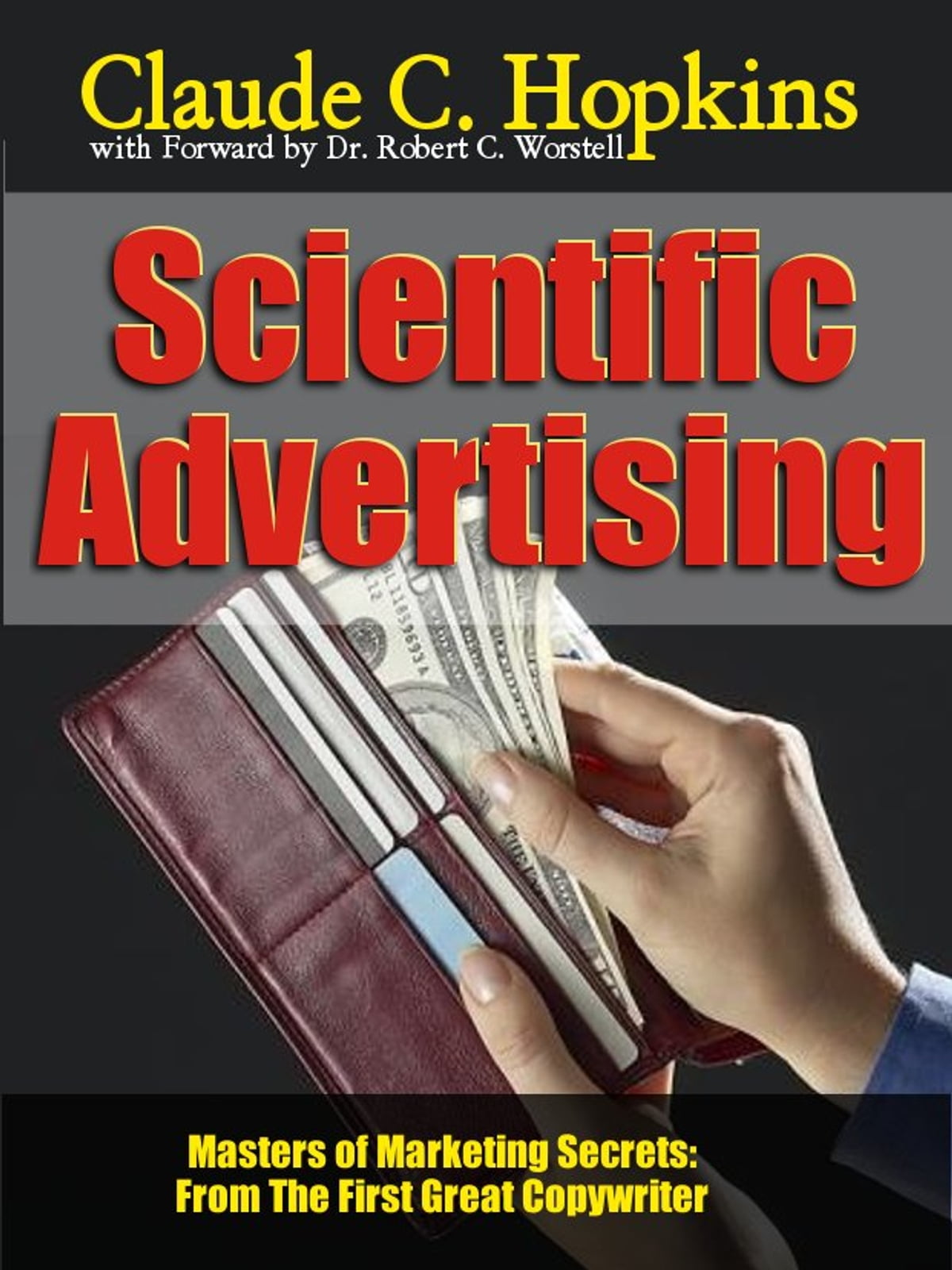
Claude Hopkins is considered one of the most influential copywriters of all time. He was an American advertising pioneer known for his innovative and successful advertising campaigns.
Hopkins worked for several major companies like Pabst Brewing Company, where he boosted sales and profitability with his own genius.
Then – fortunately for us – he wrote Scientific Advertising in 1923, and it’s still considered an absolute classic in the field of copywriting.
Why Read It?
Scientific Advertising offers a wealth of practical advice and insights that apply to any medium or platform. Hopkins breaks down the advertising process into a step-by-step guide, from researching your target audience to crafting headlines and body copy.
He was also one of the first to stress the importance of testing and measuring the effectiveness of your advertising – which is still a crucial aspect of copywriting today.
What You'll Learn
One of the biggest concepts covered in the book is the importance of identifying and targeting a specific audience. Hopkins states that "a general appeal to the general public is usually a waste of time and money."
He emphasizes crafting a clear and compelling headline that grabs the reader's attention and encourages them to read on. You’ll enjoy his examples of effective headlines and explanations as to why they work.
The book also covers the structure of a sales letter, how to write compelling headlines, and the importance of using testimonials for proof to support your claims.
2. The Adweek Copywriting Handbook by Joe Sugarman
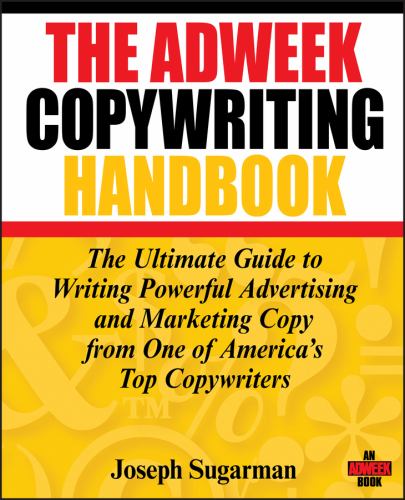
Joe Sugarman is known for his work in the field of direct response marketing, having developed and marketed his way to immense success.
He wrote The Adweek Copywriting Handbook in 1995; it’s now one of my all-time favourites.
Why Read It
The Adweek Copywriting Handbook is a comprehensive guide to copywriting with a focus on direct response marketing.
Sugarman wrote this book based on his decades of experience. He really doesn’t leave anything out. The book covers a wide range of topics, from the basics of copywriting to more advanced strategies and techniques.
What You'll Learn
Sugarman emphasizes the importance of researching and understanding your target market. Without doing so, he says, you cannot hope to write effective copy that resonates.
Another key takeaway from this book is the importance of a strong call to action. Sugarman explains how to write effective calls to action that motivate readers to take the next step, whether it's making a purchase, signing up for a newsletter, or visiting a website.
It also covers more advanced areas, such as how to write for different mediums and how to measure the success of your advertising campaigns.
3. Influence: Science and Practice by Robert Cialdini
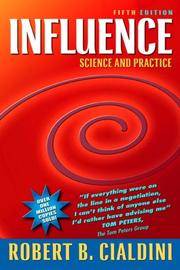
Social psychologist Robert Cialdini, Ph.D., is considered one of the leading experts in the field of persuasion. He’s spent years researching the psychology of persuasion – and his knowledge is completely applicable to copywriting.
His book, Influence: Science and Practice is a must-have on any copywriter’s shelf.
Why Read It?
While his book isn’t specifically about copywriting, Cialdini’s insights into psychology, persuasion and emotional resonance are unmatched. I walked away with a much deeper understanding of the factors that influence people's behaviour.
If you really want to write copy that converts, you’ve got to think like a psychologist – and that’s exactly what this book helps you achieve.
What You'll Learn
Some of the key concepts covered in the book include the six principles of influence, which are reciprocation, scarcity, authority, consistency, liking, and consensus. The book also covers how to use these principles in different contexts, such as in advertising, negotiation, and leadership.
You’ll learn how to recognize and defend against manipulative tactics, as well as how to build trust and credibility with your audience. The book is a great resource for anyone looking to improve their ability to influence and persuade others through their copywriting.
4. Copyhackers Book Series by Joanna Wiebe
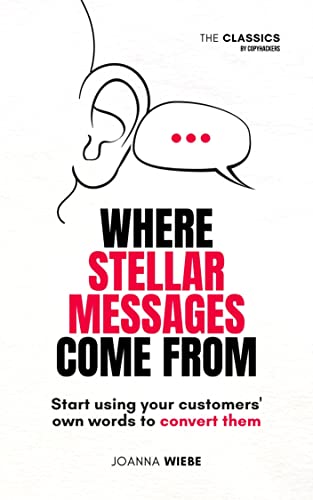
Joanna Wiebe is the founder of Copyhackers. She’s considered an authority in the field of conversion copywriting and has written several books in the Copyhackers series.
Why Read It?
The Copyhackers books cut right to the chase with practical advice on the modern website and CRO copywriting. Written by a seasoned professional, they offer a wide range of insights and tips on how to improve your copywriting to drive conversions.
Wiebe’s series is written with the goal of helping businesses increase their conversion rates and revenue through effective copywriting. I love how easy the books are to read and follow, and they’re filled with examples and case studies to help you understand the concepts.
What You'll Learn
Trust me when I say that these books are an absolute goldmine of knowledge. You’ll quickly learn how to use data and testing to optimize your copy and improve conversion, as well as learn how to write copy that is optimized for search engines (SEO) and social media.
You’ll understand how to write effective call-to-action (CTA) copy, how to use research and data to optimize your copy, and how to test and measure the effectiveness of your copy.
The series is a treasure trove of practical advice for any copywriter looking to improve their craft and drive conversions through their copy. It’s a must-have on your bookshelf.
5. Unleash The Power of Storytelling by Jim Signorelli
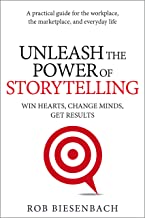
This book is a must-read for any copywriter looking to master the art of storytelling in their copywriting.
Jim Signorelli is an experienced copywriter and marketing expert with over 30 years of experience in the industry. He’s known for his work in storytelling and emotional marketing and has worked with some of the biggest brands in the world, including Coca-Cola, Nike, and McDonald's.
Why Read It?
Unleash The Power of Storytelling is considered a classic in the copywriting industry. When it was recommended to me, I had no idea of the extent to which it would change my copywriting (for the better!)
Signorelli provides a detailed understanding of the psychology of storytelling and how it can be used to influence consumer behaviour. He outlines a framework for creating effective stories and demonstrates how to use storytelling to build brand loyalty and drive conversions.
What You'll Learn
If you’re still green on key concepts – like the role of storytelling in advertising, the structure of effective stories, or how to create compelling characters and plots – this book will convert you to a seasoned pro.
You’ll gain access to a range of tools and techniques for creating effective storytelling campaigns, from research and planning to execution and measurement.
Signorelli emphasizes the need to create an emotional connection with your audience and how storytelling can be used to create that connection. His practical examples and exercises are designed to help readers develop their storytelling skills.
6. Predictably Irrational by Dan Ariely
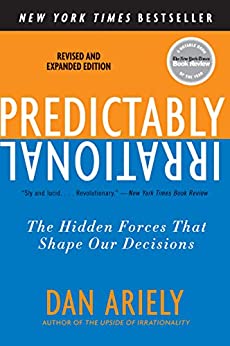
Dan Ariely, a renowned behavioural economist, delves into the world of psychology and how it relates to sales and decision-making. His book gives a variety of examples and experiments to explain how we often make choices that defy rational thought.
Why Read It?
Predictably Irrational provides valuable insights into how people make decisions and what motivates them to take action. It highlights the importance of understanding the psychological triggers that influence people's choices and how to use them in your copywriting.
Ariely's writing style is engaging and easy to understand; I found his book an excellent introduction to the field of behavioral economics.
What You'll Learn
Ariely explains how the default option (the option that is preselected) often wins out in decision-making, even if it's not the best choice. His insight can help copywriters understand how to structure their calls to action to increase conversions.
I particularly enjoyed his writing on the impact of social norms and how they play a role in people’s perception of value.
And it wouldn’t be a psychological copywriting book if it didn’t mention the power of emotions. Ariely explains how emotions play a crucial role in decision-making and how they can be used to influence people's choices. This is now a standard in virtually all sales letters and offers.
Wrap Up
The point I’m trying to make here is that reading – whether you’re a bookworm or a casual skimmer – is crucial to your development as a writer.
How can you be a truly great copywriter if you haven’t learned from the professionals who went before us?
That’s not to say you won’t develop your own tricks and strategies because you will. But the best copywriters combine their own skills with the advice and expertise of industry experts.
I personally recommend each and every one of these books; they changed my writing for the better and refined my outlook on persuasive text.
Happy reading!
